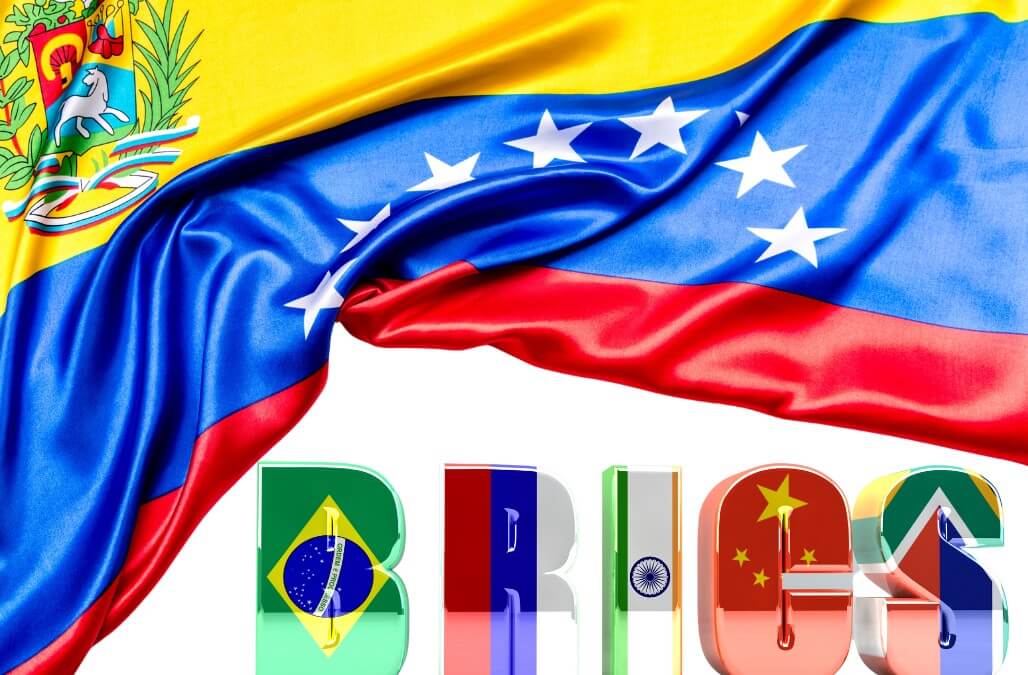Venezuela’s President Nicolas Maduro is actively seeking China’s support in joining the recently expanded BRICS group, a bloc of Brazil, Russia, India, China, and South Africa. This move comes as the BRICS members recently agreed to admit six new full members.
Venezuela seeks entry into BRICS
In an interview with the Chinese state news agency Xinhua, Maduro expressed his aim to secure Venezuela’s entry into BRICS, emphasizing the importance of China’s support and that of other member countries. He highlighted that Venezuela, with the world’s largest oil reserves, could significantly contribute to the group.
Maduro sees the expanded BRICS as a powerful force in driving the emergence of a new global order characterized by cooperation, particularly championing the voice of the global south. He believes that BRICS nations are instrumental in accelerating the shift away from the dominance of the US dollar and fostering a new international financial system and a more equitable economic order.
During his state visit to China, his first since 2018, Maduro looked to strengthen ties with Beijing, considering China as Venezuela’s primary creditor and a close ally in the face of diplomatic isolation and economic challenges.
On August 4, Venezuela formally applied for BRICS membership and is hopeful for a positive decision. Maduro anticipates a welcoming response from the existing BRICS members, foreseeing a future where Venezuela will be a significant part of this influential group. He underlines BRICS’ pivotal role in shaping a multipolar world order and a more balanced global landscape.
Venezuela and China enter a deal for economic growth
The Bolivarian Republic of Venezuela and the People’s Republic of China recently entered into a Memorandum of Understanding which pertains to special economic zones’ cooperation, development, and modernization.
For Venezuela, establishing Special Economic Zones is critical in fortifying a model of sovereign economic development and national production that ensures a robust, productive chain, legal stability, social equity, and environmentally sustainable practices. Venezuela has taken significant strides in strengthening these zones, including enacting the Organic Law of Special Economic Zones (LOZEE) to regulate their creation, organization, operation, administration, and development.
Meanwhile, Venezuelan Vice President Delcy Rodriguez’s recent visit to Shanghai and Beijing included meetings with Chinese Foreign Minister Wang Yi. This visit, one of the highest-level exchanges between Caracas and Beijing in years, reinforced bilateral ties, expanded strategic cooperation, and collaborated internationally for peace and in adherence to the principles in the UN charter.
The visit also aimed to secure new investments in Venezuela’s oil sector from Beijing and explore potential joint ventures between Venezuelan and Chinese petroleum companies. Venezuela has long sought Chinese assistance in revitalizing its economy, which is grappling with one of the highest inflation rates in the world.
BRICS invites new members
The BRICS group of developing nations recently made a significant decision to admit six new members: Saudi Arabia, Iran, Ethiopia, Egypt, Argentina, and the United Arab Emirates. This move aims to accelerate their efforts to reshape the global order, which they perceive as outdated.
This expansion, the first in 13 years for the bloc, leaves room for potential future enlargements, as numerous other countries have expressed interest in joining the BRICS group as a platform that could help level the playing field globally. Meanwhile, the new countries add considerable economic influence to the BRICS group. This expansion aligns with the bloc’s ambition to champion the interests of the Global South.
However, the expansion may also bring about enduring tensions within the group. On one hand, some members, like China, Russia, and now Iran, aim to transform the BRICS into a counterbalance to the West. On the other hand, some members maintain strong connections with the United States and Europe.
Chinese President Xi Jinping, a staunch advocate for BRICS expansion, emphasized the historic nature of this membership enlargement. He stated that it demonstrates the determination of BRICS countries to foster unity and cooperation with a broader community of developing nations.





